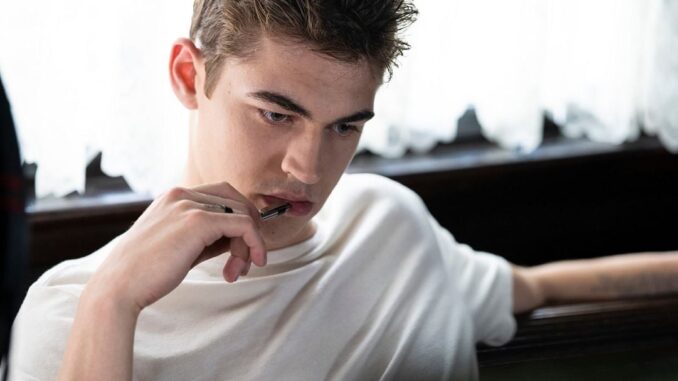
Breaking the Shadow: The First Love Hero and Romance’s Hopeful Dawn
For too long, the landscape of young adult and new adult romance has been cast in the long, angsty shadow of a particular archetype. Call him the “Hardin” — a character etched in fire and conflict, whose love is as intoxicating as it is often toxic, whose passion is inseparable from his pain. He arrived with a tempestuous charisma, promising intensity and a reclamation arc, yet his pervasive influence eventually left a generation of romance-weary fans hoping for a different kind of dawn. Now, a new whisper, a different rhythm, suggests an escape is underway: the “First Love” hero, marking not just a character shift, but a hopeful recalibration of what romance can be.
The “Hardin shadow” is more than just one character; it’s a pervasive trope of the brooding, emotionally volatile “bad boy” whose journey to redemption is intertwined with the emotional suffering of his equally complex, often self-sacrificing, heroine. The initial allure was undeniable: a visceral, consuming passion, the thrill of taming a wild heart, the dramatic highs and lows that mimicked the turbulent intensity of first-blush infatuation. Hardin Scott, and the legions of characters he inspired, offered a cathartic ride, an exploration of fierce desire and the often-painful process of self-discovery through another. Yet, the shadow grew long and oppressive. Toxic masculinity, emotional manipulation, possessiveness disguised as intense love – these became the uncomfortable hallmarks. Readers, once thrilled, found themselves increasingly exhausted by the repetitive cycle of drama, the glorification of unhealthy relationship dynamics, and the diminishing returns of perpetual angst. The narrative, instead of offering escape, often felt like a mirror reflecting the most anxiety-inducing aspects of real-world relationships.
But shadows, no matter how vast, always yield to the dawn. And that dawn, for many, is breaking with the emergence of the “First Love” hero. This isn’t a return to a saccharine, simplistic ideal, but a conscious pivot towards a different kind of strength, a gentler, more fundamentally supportive form of romantic engagement. The “First Love” hero is defined not by what he breaks, but by what he builds. He listens. He supports. He celebrates her triumphs without needing to be the cause of them. His conflicts are internal, or external to the relationship, rather than self-inflicted wounds upon the heroine’s heart. He might be awkward, earnest, a little shy, or quietly confident, but his defining characteristic is respect – for her autonomy, her ambitions, and her emotional well-being. His “first love” isn’t about claiming, but about discovering with her, fostering a space for mutual growth rather than co-dependent entanglement.
For the romance-weary fans, this isn’t merely a change in preference; it’s a balm, a breath of fresh air. They are hopeful because this archetype speaks to a yearning for authenticity, for the simple, profound magic of genuine connection unburdened by manufactured drama and psychological warfare. It reminds readers that love can be a source of strength, comfort, and joy, rather than an endless battlefield. This hero embodies a growing cultural awareness that healthy relationships are built on trust, communication, and mutual upliftment, and that these qualities are inherently romantic. The “First Love” hero allows for stories where the journey isn’t about surviving the person you love, but thriving because of them; where the conflict arises from life itself, rather than from the destructive tendencies of the romantic lead. It’s a quiet rebellion against the notion that love must be painful to be profound, or toxic to be intense.
The “Hardin shadow” may linger, a potent reminder of a particular era in romance. But the arrival of the “First Love” hero feels like a collective exhale, a hopeful turn towards narratives that validate gentler desires and healthier dynamics. It’s not merely a shift in character preference; it’s a testament to the evolving desires of an audience ready to embrace stories where first love is a foundation, not a trial by fire. It marks a refreshing escape from the cyclical drama, promising not just new stories, but a new, healthier chapter in the sprawling, beautiful epic of love itself.
